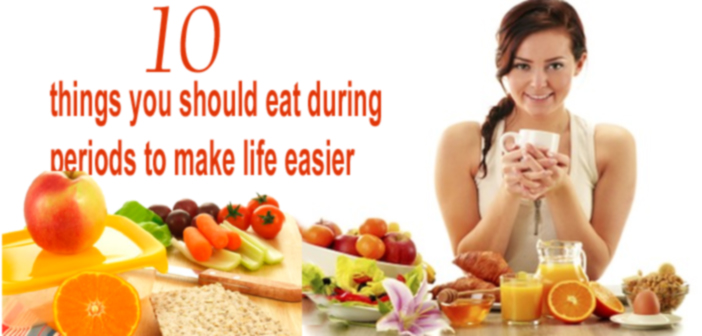That time of the month is really challenging for every woman no matter at what age you are. From mood swings to cravings to cramps — everything can test your patience and sanity as well. If you have tried everything under the sun to soothe your cramps and settle your mood swings, now try out these foods. Eating the right foods during menstruation can help you to deal with those days better. So here goes your list:
Proteins: Include more of dals, tofu, paneer and boiled eggs in your diet, especially in your lunch. Protein in your diet will help you to keep your blood sugar levels in check and limit sugar craving that are common during this time. However, stay away from legumes such as chickpeas, kidney beans, black-eyed peas etc., as they can cause bloating. Also stay away from spicy chicken and fish curries, which can cause nausea. Keep your diet simple and light. Here is a sample diet pattern you can follow during your periods.
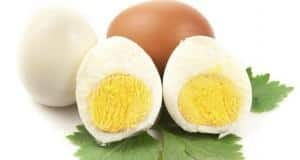 Calcium: A glass of warm milk can do you wonders during menstruation. According to a study published in the Archives of Internal Medicine, calcium and Vitamin D go hand in hand in reducing PMS symptoms. In fact, they act as a muscle relaxant and help ease stomach cramps and aches and pains. If you are lactose intolerant, then eat foods that are rich in calcium — leafy greens, nuts, soya, sesame seeds, etc. Here are 10 other ways to counter menstrual pains.
Calcium: A glass of warm milk can do you wonders during menstruation. According to a study published in the Archives of Internal Medicine, calcium and Vitamin D go hand in hand in reducing PMS symptoms. In fact, they act as a muscle relaxant and help ease stomach cramps and aches and pains. If you are lactose intolerant, then eat foods that are rich in calcium — leafy greens, nuts, soya, sesame seeds, etc. Here are 10 other ways to counter menstrual pains.
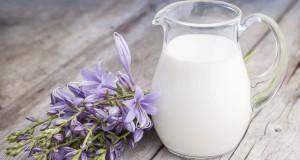
Vitamins: There are some vitamins that you can’t do without during your periods. Foods rich in Vitamin B6 can help you in reducing symptoms like bloating and control mood swings. So eat lots of pista, broccoli, tomatoes, corn and other fortified cereals that are rich in Vitamin B6. Lemons, oranges and sweet lime that are rich in Vitamin C are good for a woman’s reproductive health and can keep you energised during those days. Also, foods rich in Vitamin E like pumpkin seeds, peanuts and sunflower seeds help to reduce PMS symptoms.
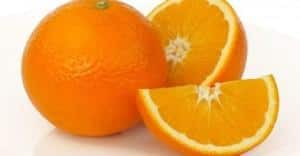
Magnesium and potassium-rich foods: These two micro-nutrients can go a long way in alleviating cramps and other symptoms. Pumpkin seeds, beans and tofu are good sources of magnesium that can reduce bloating. bananas, avocados, sweet potatoes rich in potassium can help boost moods, aid sleep and regulate bowel movements. Here are the other foods that you should stay away from during menstruation.
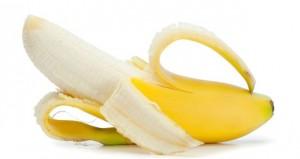 Carbohydrates: Like protein, carbohydrates also help to control blood sugar levels and counter unhealthy cravings. Whole grains, oatmeal, wheat and multigrain chapattis when added to the diet can help a lot.
Carbohydrates: Like protein, carbohydrates also help to control blood sugar levels and counter unhealthy cravings. Whole grains, oatmeal, wheat and multigrain chapattis when added to the diet can help a lot.
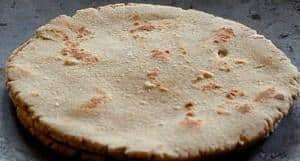
Nuts: These are packed with essential nutrients and are great to munch on during this time. However, avoided processed and salted ones as they could make you feel bloated due to high salt content. Keep in mind that nuts are high in calories so don’t go overboard with them.
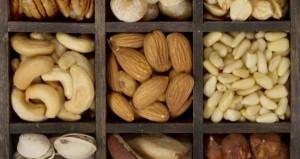
Caffeine: It is a good idea to skip caffeine during this time as it could raise the level of stomach acid and irritate you. Also, caffeine is known to cause bloating and acidity during menstruation. But a hot cup of chai which also has some amount of caffeine in it will not hurt you. Instead, it can make you feel energised and life your moods. Here are 5 herbal teas that can help you slim down.
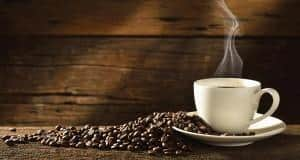 Fruits: Apples, pear, berries, melons all fruits can help you deal with sugar cravings and provide with all the macro and micronutrients to help you combat period induced weakness.
Fruits: Apples, pear, berries, melons all fruits can help you deal with sugar cravings and provide with all the macro and micronutrients to help you combat period induced weakness.
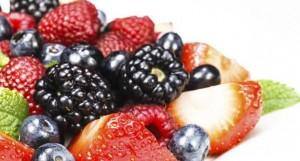
Omega 3 fatty acid: A study published in Obstetricians and Gynecology found that women who received a daily dose of 6 gm of fish oil suffered from fewer PMS symptoms than those who didn’t consume the same. Apart from fish, flaxseeds and pumpkin seeds are also rich in omega 3 fatty acids that can help you get relief from cramps and pains.
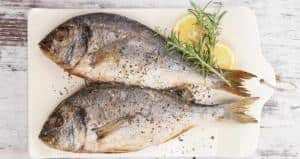
Water: You cannot miss out on this. Drinking adequate amounts of water will help you alleviate symptoms of bloating and relieve you from water retention that’s common during periods.
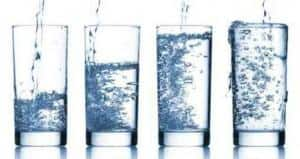 Here are few things that you should keep in mind:
Here are few things that you should keep in mind:
Eat less salt: As it could lead to water retention and bloating. Avoid eating processed and packaged food as they are high in sodium content.
Have small meals: You might have nausea and lose your appetite during those days. Don’t force yourself to eat a heavy meal in one go. Instead, try to eat small meals like fruit or few nuts at one time. Skipping meals would rob your body of necessary nutrients that you need during this time.
Chew your food properly: This is more important during menstruation as your system can be sluggish and gobbling huge morsels could lead to indigestion.

